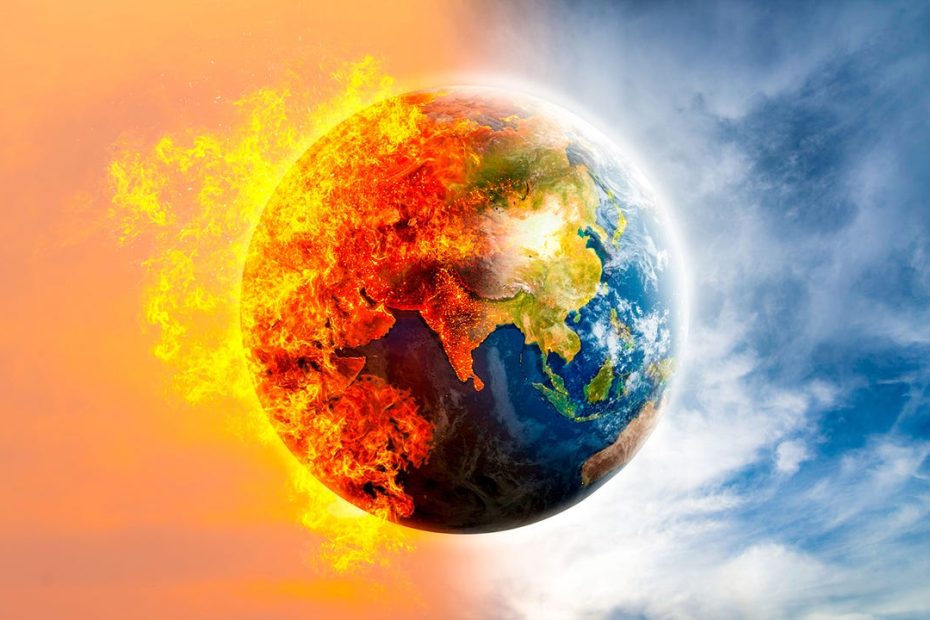Climate change is already impacting our planet and will significantly affect future generations. The urgency for action to mitigate its effects has never been more critical.
The consequences of climate change, such as extreme weather events and rising sea levels, will pose enormous challenges for the next generation. As the window for effective action grows smaller, it becomes increasingly important to address climate change and implement sustainable solutions.
Climate change is one of the most pressing issues of our time, and its effects will shape the world our children and grandchildren inherit. Addressing this challenge requires a comprehensive understanding of its impact on the environment, economy, and society. By examining the implications of climate change on future generations, we can better appreciate the need for immediate action to mitigate its effects and pave the way for a sustainable future. It is imperative to explore innovative technologies and renewable energy sources to minimize the harmful impact of climate change and secure a healthier planet for the next generation.
Understanding The Science
Understanding the science behind climate change is crucial for addressing its impact on our next generation. By delving into the key factors contributing to environmental shifts, such as greenhouse gas emissions and rising global temperatures, we can equip ourselves with the knowledge necessary to implement effective solutions and mitigate the long-term consequences.
Greenhouse Gas Emissions
Greenhouse gas emissions, including carbon dioxide, methane, and nitrous oxide, have been steadily increasing due to human activities such as industrialization, deforestation, and transportation. These gases trap heat in the Earth’s atmosphere, leading to a phenomenon known as the greenhouse effect. This contributes to the overall warming of the planet, disrupting ecosystems and weather patterns.
Rising Global Temperatures
The rise in global temperatures directly correlates with intensified greenhouse gas emissions. This trend is evident in the increasing frequency and severity of heatwaves, melting ice caps, and rising sea levels. The consequences of rising temperatures extend to widespread impacts on agriculture, water resources, and biodiversity, underscoring the urgency of addressing this issue.
Ecological Consequences
Climate change has profound ecological consequences, affecting our next generation’s future on Earth. As global temperatures rise, ecosystems are being disrupted, leading to biodiversity loss, extreme weather events, and sea level rise. It’s crucial to address these issues now to ensure a sustainable planet for future generations.
Disruption Of Ecosystems
The ongoing climate changes are leading to severe disruptions in ecosystems across the globe. Extreme weather events, such as heatwaves, hurricanes, and droughts, are becoming more frequent and intense, posing serious threats to various habitats. These disruptions are altering the natural balance of ecosystems, leading to habitat loss and widespread deforestation.
Additionally, rising temperatures are affecting the migration patterns of many species, causing them to move towards cooler areas, which can lead to competition with native species and the potential loss of food sources. The disruption of ecosystems is a major concern, as it can affect the survival of endangered species and lead to the extinction of vulnerable populations.
Loss Of Biodiversity
Climate change is also contributing to a significant loss of biodiversity. The warming of the oceans is leading to coral bleaching and acidification, threatening the existence of marine life. Moreover, habitats such as rainforests are being jeopardized by changing climate patterns, and this loss of habitat is impacting countless species that depend on these ecosystems for survival.
The disappearance of species can have cascading effects on entire food chains, affecting ecosystem stability and the resilience of natural environments. As a result, the loss of biodiversity can have far-reaching consequences for the functionality and productivity of ecosystems, ultimately impacting the wellbeing of our next generation.
Socioeconomic Ramifications
Climate change has far-reaching socioeconomic ramifications affecting the well-being of nations and communities. With detrimental impacts on agriculture, food security, and human health, it poses significant challenges to the prosperity and stability of future generations.
Effects On Agriculture And Food Security
The changing climate patterns have led to disruptions in agricultural productivity, affecting crop yields and livestock production. Extreme weather events, such as droughts and floods, have become more frequent, causing substantial damage to crops and undermining food security.
Furthermore, the rise in global temperatures has facilitated the spread of pests and diseases, posing additional threats to agricultural systems. The need for adaptive strategies and resilient agricultural practices has become imperative to mitigate the adverse effects of climate change on food production and supply.
Impacts On Human Health
Climate change exacerbates the prevalence of various health issues, including heat-related illnesses, respiratory diseases, and vector-borne infections. Rising temperatures contribute to the expansion of disease-carrying vectors, heightening the risk of epidemics and health emergencies.
The degradation of air and water quality further compounds the health challenges faced by communities. Vulnerable populations, including children, the elderly, and marginalized groups, are disproportionately affected by these environmental changes, demanding urgent interventions to safeguard public health.

Credit: www.savethechildren.org
Technological Innovations
Technological innovations, in the face of climate change, play a pivotal role in shaping the future of our planet. With the growing threat of climate change, it is imperative to explore and implement advanced solutions that can mitigate its impact. These technological advancements encompass a wide array of developments, ranging from renewable energy solutions to climate-resilient infrastructure.
Renewable Energy Solutions
In the quest for sustainable energy, the focus has shifted towards harnessing renewable sources such as solar, wind, and hydroelectric power. These energy solutions not only reduce reliance on fossil fuels but also minimize greenhouse gas emissions, thus contributing to the fight against climate change. The development and widespread adoption of renewable energy technologies hold the key to ushering in a greener and more sustainable future.
Climate-resilient Infrastructure
Adapting our infrastructure to withstand the impacts of climate change is paramount. Climate-resilient infrastructure encompasses innovative designs and construction methods that can withstand extreme weather events, sea-level rise, and other climate-related challenges. From resilient buildings to flood-resistant transportation systems, integrating climate resilience into infrastructure projects is essential for the protection and sustainability of our communities.
Policy And Advocacy
Policy and advocacy play a vital role in addressing the impact of climate change on the Earth, especially for future generations. Implementing effective international agreements and regulations and fostering community engagement and education are crucial components in mitigating the adverse effects of climate change.
International Agreements And Regulations
International agreements and regulations form the cornerstone of global efforts to combat climate change. The Paris Agreement, signed by nearly 200 nations, aims to limit global temperature rise and facilitate adaptation to the impacts of climate change. The implementation of stringent regulations governing greenhouse gas emissions and sustainable practices is imperative for effective climate action.
Community Engagement And Education
Community engagement and education are paramount in fostering a collective understanding of climate change and its impact on future generations. By empowering communities with the knowledge and resources to adopt sustainable practices, we can create a ripple effect of positive change. Education on renewable energy, waste reduction, and sustainable living practices equips individuals to make informed decisions that benefit the environment.
Mitigation And Adaptation Strategies
INTRODUCTORY PARAGRAPH
As the impact of climate change becomes increasingly evident, it is crucial to highlight the significance of mitigation and adaptation strategies in safeguarding the future of our planet and the well-being of the next generation. By implementing sustainable practices for individuals and resilient urban planning, we can proactively address the challenges posed by climate change and pave the way for a more sustainable future.
SUSTAINABLE PRACTICES FOR INDIVIDUALS
Sustainable Practices For Individuals
- Reduce, Reuse, Recycle: Emphasize the importance of minimizing waste and maximizing resource efficiency through the adoption of the 3R principle.
- Transition to Renewable Energy: Encourage individuals to embrace solar, wind, and other clean energy sources for their homes and businesses.
- Shift to Sustainable Transportation: Promote the use of public transport, cycling, and electric vehicles to reduce greenhouse gas emissions.
RESILIENT URBAN PLANNING
Resilient Urban Planning
- Green Infrastructure: Integrate natural elements such as green spaces, urban forests, and permeable surfaces into urban landscapes to mitigate the urban heat island effect and enhance resilience to extreme weather events.
- Climate-Responsive Design: Emphasize the incorporation of climate-responsive building designs and energy-efficient technologies to minimize energy consumption and enhance resilience to climate impacts.
- Community Engagement: Foster community involvement in urban planning processes to ensure that climate adaptation measures are inclusive and address the unique needs of local residents.
Shaping Our Next Generation
As the impact of climate change becomes increasingly undeniable, the need to educate and empower the next generation in environmental conservation has never been more vital. The future of our planet rests on their shoulders. By nurturing an understanding of climate change and empowering young minds to innovate and lead in environmental conservation, we can pave the way for a sustainable and resilient future.
Educating Youth On Climate Change
The education of youth on climate change is crucial to ensuring that they are equipped with the knowledge and skills to tackle environmental challenges. Through comprehensive education, the next generation can understand the causes and effects of climate change and be inspired to take action to mitigate its impacts.
Empowering Future Leaders In Environmental Conservation
Empowering future leaders in environmental conservation will be pivotal in fostering a generation of individuals who are passionate about protecting our planet. By providing them with the tools, resources, and mentorship, we can unleash their potential to drive meaningful change and innovation in sustainability practices.
Frequently Asked Questions For Climate Changes Effect On Earth: Our Next Generation
How Will The Next Generation Be Affected By Climate Change?
The next generation will face severe impacts from climate change, including extreme weather, food shortages, and health risks.
How Will Climate Change Affect the Earth in the Future?
Climate change will impact the Earth’s future with rising temperatures, extreme weather events, sea-level rise, and environmental disruptions. These changes will affect ecosystems, agriculture, water resources, and human health. It’s important to take action to mitigate these effects.
What Are the Five Effects of Climate Change on Earth?
Climate change effects on Earth include rising sea levels, extreme weather events, loss of biodiversity, heatwaves, and food insecurity.
What Challenges Do You Anticipate for Your Future Generation?
Future generations will face challenges like climate change, resource scarcity, and technological disruption. These will impact their lives.
Conclusion
It is crucial for us to acknowledge the impact of climate change on our planet and future generations. We must take urgent and decisive action to combat this global issue. By promoting environmentally friendly practices and supporting renewable energy sources, we can strive towards creating a sustainable and healthy planet for the next generation.
Let’s work together for a brighter future.
